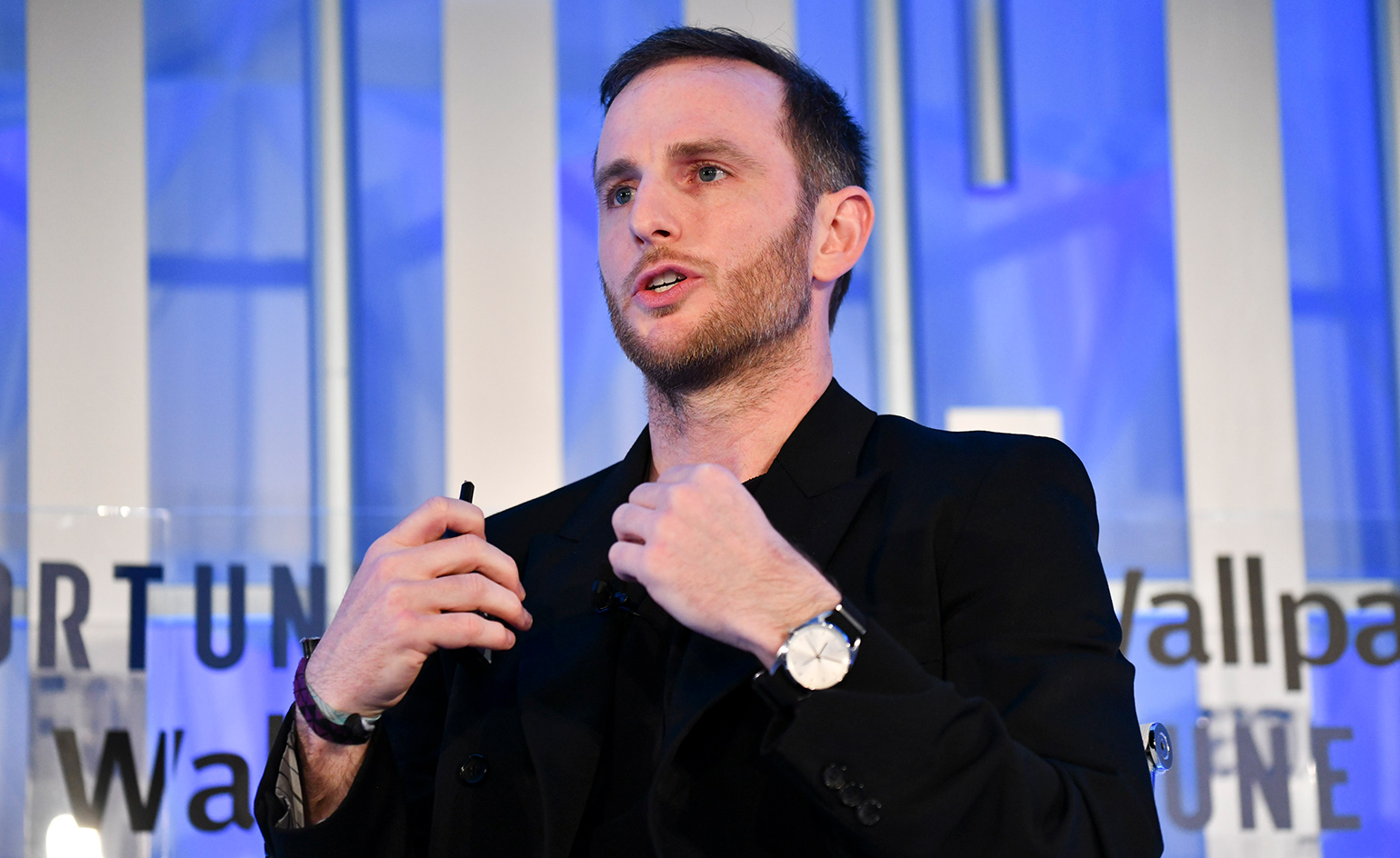Airbnb is an expert at building trust between strangers. Now it’s using that skill for good

‘When we started 10 years ago people were not staying in strangers’ homes,’ says Airbnb’s (AIRBNB, +0.00%) co-founder and chief product officer Joe Gebbia. ‘We needed to walk them across the bridge.’
But the company, now a $31 billion hospitality giant, proved that ‘with the right design, people could overcome the stranger danger bias.’ One of tech’s most successful start-ups and a Wallpaper* 2016 Game-Changer, Airbnb has helped 300 million travellers find accommodation in 81,000 cities around the world. But being successful isn’t enough, Gebbia told Tony Chambers of Wallpaper* at Brainstorm Design on Wednesday, outlining some of the ways that the company is leveraging its expertise to address displacement and revitalize communities.
Airbnb sees its strengths in creating trust between people who have never met, Gebbia said. ‘So we started to ask ourselves, where can we apply those talents around the world?’
Since 2012, Airbnb has been using its platform to locate emergency housing for people affected by more than 90 natural disasters in 20 countries, beginning with Hurricane Sandy in New York City, which rendered tens of thousands of people suddenly homeless overnight.
The company then set a more ambitious target: helping assist some of the 65 million people who had been displaced by conflict, natural disaster, or disease around the world. Airbnb launched its Open Homes programme last year with an ambitious five-year target of helping 100,000 refugees find a roof over their heads for the interim period after they’re resettled in a new country, from the time they arrive from the airport until they get back on their feet and start rebuilding their lives.
It was the ‘generosity in the host community to give back’ in the wake of natural disasters that Gebbia said convinced him that hosts would be willing to donate their spaces free of charge to help refugees.
Gebbia also leads Airbnb’s design research lab Samara, which is applying Airbnb’s trust-based approach to rebuilding communities. The initiative’s first project brought it to the rapidly aging town of Yoshino in southern Japan, where seven out of eight homes now stand empty. Yoshino is emblematic of a nationwide problem: Japan’s population is declining by some 800,000 people per year, and rural areas have been hit particularly hard as younger people move to cities in search of work.
Collaborating with award-winning architect Go Hasegawa and using wood from Yoshino’s prized cedar forests, Airbnb designed a ‘shared home of the future’ that merges a community living space on the ground floor with rented sleeping quarters above.
‘People use our service because you want to connect with a locale,’ Gebbia said. Staying in a shared home like the Yoshino Cedar House that’s half community space ‘short-circuits’ the time it takes to feel immersed in a local place and culture.
The property is managed by a community cooperative that reinvests its proceeds, Gebbia said, while tourists help provide support for local craftspeople and artisans. In the past year, he said, the property has brought $150,000 to the town, and the company hopes it will act as ‘a beachhead’ to demonstrate how Japan can solve the fill its 8 million empty homes.
The project has been replicated in Civita, one of Italy’s ‘forgotten’ medieval towns, where Airbnb worked with artisans and all 10 local residents to restore part of a historic building into ‘a beautiful warm environment, and leverage our platform to create awareness for this tiny village,’ Gebbia said.
Ten years ago, Gebbia said, people didn’t expect that they would be staying in strangers’ homes; this past New Year’s Eve, the platform saw 3 million bookings in over 160 countries.
‘A company operating in the 21st century has a responsibility to go beyond the call of day to day business,’ Gebbia said. ‘It takes more than writing a check or cutting a grant to an organisation. It’s taking whatever you’re good at as a company and going out into the world and solving problems.’
The Brainstorm Design conference is jointly organised by Fortune, TIME and Wallpaper*, bringing together more than 300 top speakers and delegates from 33 countries. See more here
INFORMATION
For more information, visit the Brainstorm design website
Receive our daily digest of inspiration, escapism and design stories from around the world direct to your inbox.